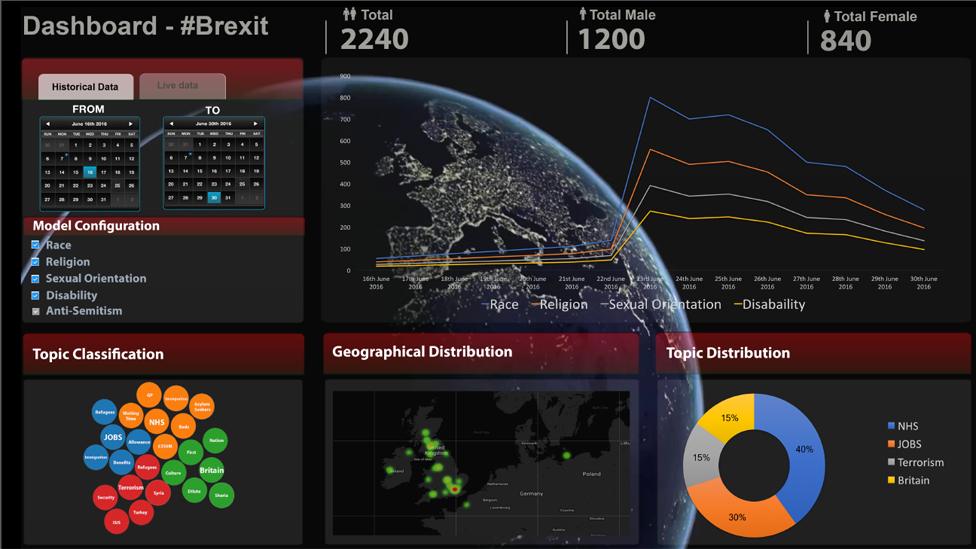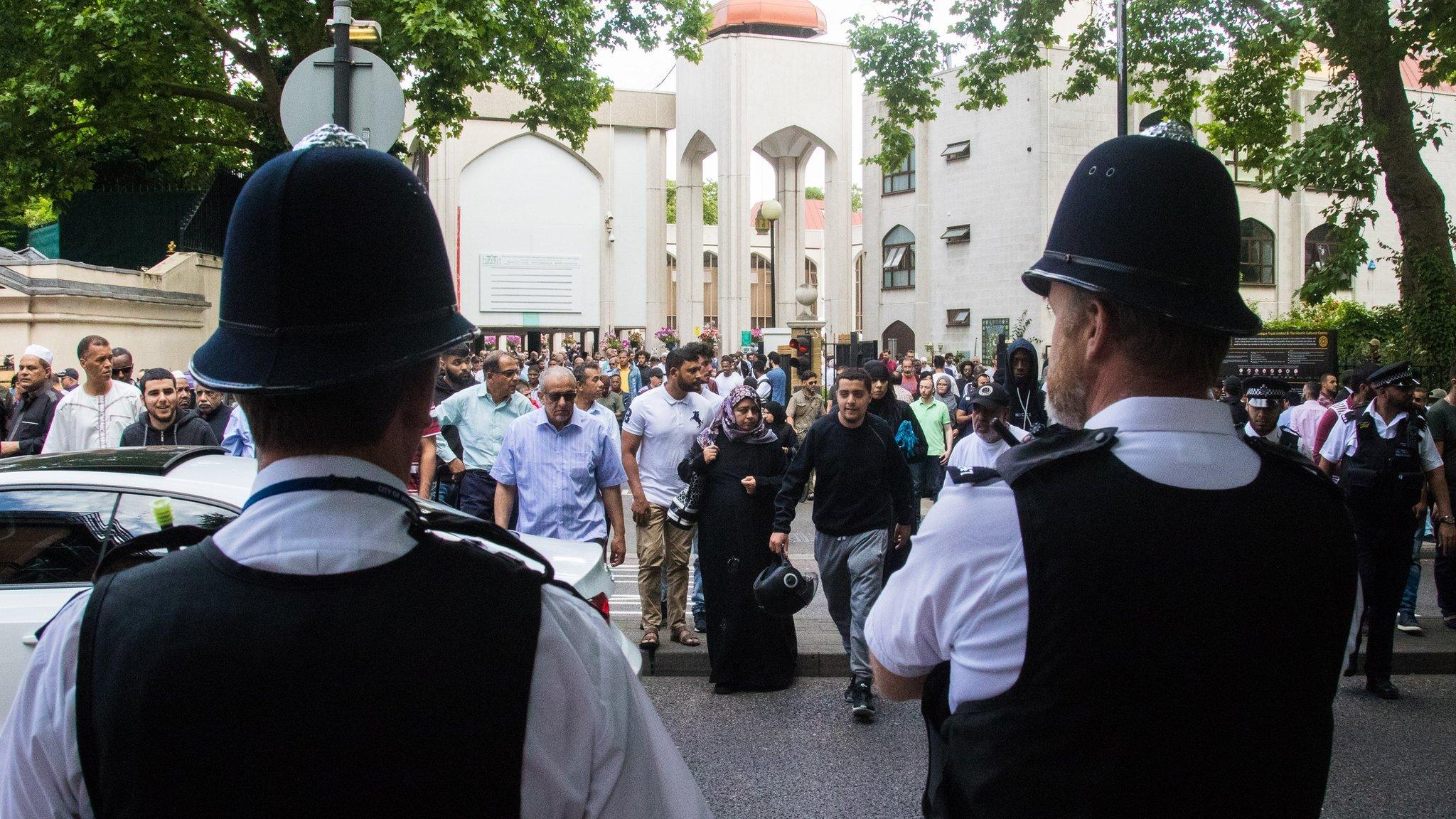Cardiff University to track hate speech and 'triggers'
- Published

A mock-up of what the dashboard will look like once it is developed - by March 2019
Spikes in hate speech on social media are to be tracked by an online tool - aimed at helping police pre-empt crimes on the streets.
Cardiff University has been awarded £1m for its HateLab research programme., external
It will look at "trigger" events like terrorism and Brexit and how they may motivate hate crimes.
An online hate speech dashboard is being developed, using artificial intelligence to monitor hate speech in real time.
The aim is to enable police and support organisations to respond more quickly - and pre-empt online and street hate crimes.
Experts believe the terror attacks between March and June 2017 were the main contributor to the 17% increase in hate crime in England and Wales in 2017-18.

Professor of criminology Matthew Williams, said Brexit had drawn sharp divisions in society.
"Whatever the outcome, be it a second referendum, a soft-Brexit or a no-Brexit, there is concern that events will motivate more hate crime," he said.
"As we saw following the 2016 vote, and to a more extreme extent following the 2017 terror attacks, surges in online hate speech coincided with significant increases in hate crimes offline."
The dashboard is being developed in partnership with the National Online Hate Crime Hub, which was announced by the Home Secretary in 2017., external
The research team hopes HateLab, at Cardiff University's Data Innovation Research Institute, will allow hub staff to monitor hate speech "using cutting-edge ethical artificial intelligence."
It wants to speed up responses to "trigger" events, to dispel rumours and stop hate speech spreading.
The lab is working with Wales' four police forces, Greater Manchester Police, Welsh Government and hate crime charities.
- Published16 October 2018

- Published16 October 2018

- Published19 July 2018

- Published12 January 2018
